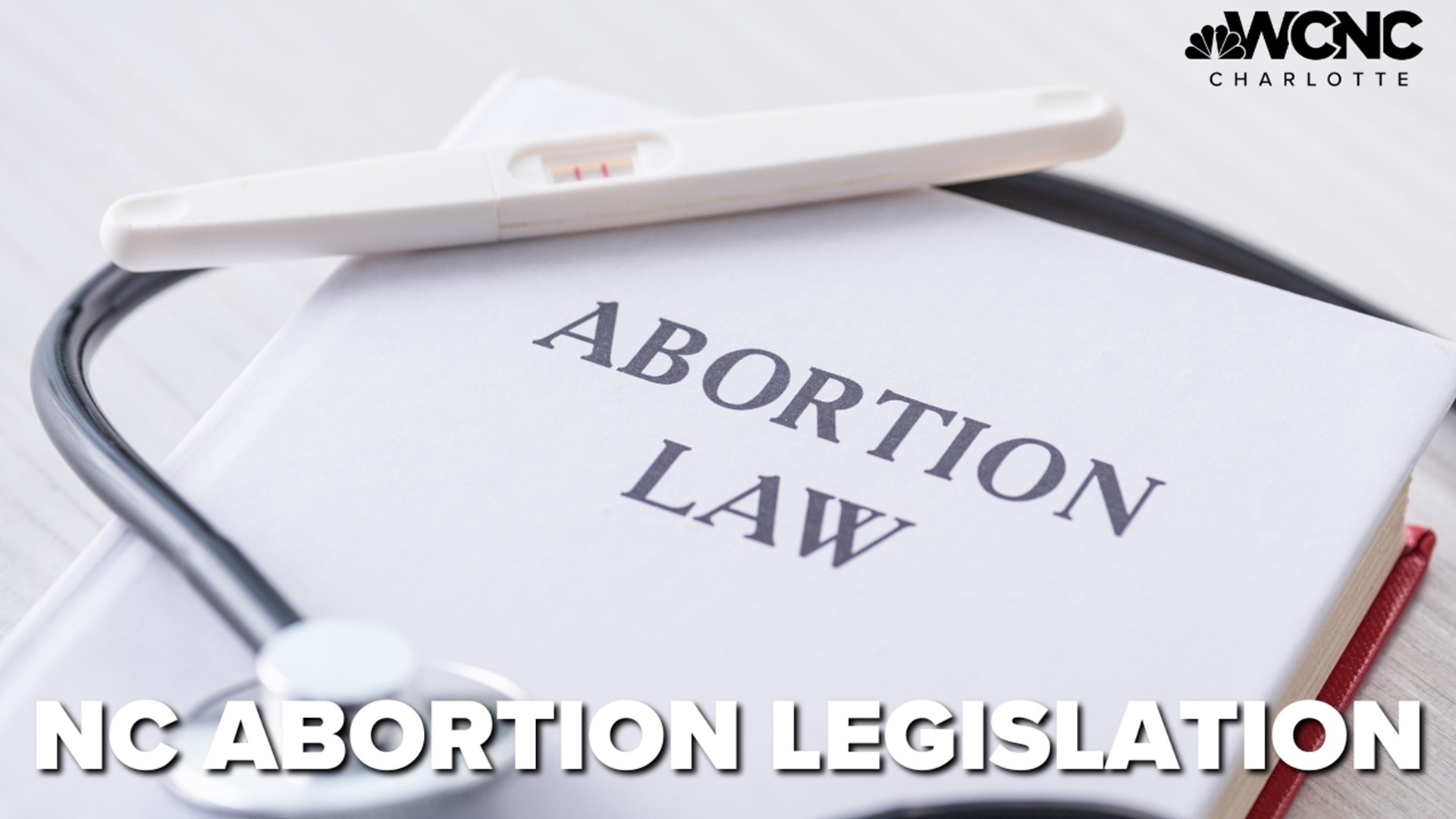CHARLOTTE, N.C. — North Carolina abortion providers are facing the possibility of closure under the new abortion law that goes into effect on July 1st.
The law, passed by the Republican-controlled General Assembly and overridden over a Governor Roy Cooper veto, bans most abortions after 12 weeks of pregnancy with some exceptions.
"I'm really sad and disappointed that North Carolinians now will not have access to full-scope, reproductive health care," said Dr. Jonas Swartz, assistant professor of obstetrics and gynecology at Duke Health.
The new law is one of a number of recent restrictions on abortion that have been passed by Republican-controlled state legislatures.
The law imposes a number of new requirements on abortion providers, including the need to have an additional "ambulatory surgical center" license.
The ASC license is required for facilities that perform surgical procedures on an outpatient basis. Under the new law this would include includes abortion clinics.
"Currently, across the state clinics that provide abortion provide safe abortion in an outpatient setting, inclusive of and above 12 weeks gestation," Swartz said. "That [the new law's requirement] is not an evidence-based practice. It is not reflective of any information that we have about whether abortion is safe or high quality."
The new law defines an “ambulatory surgical center” as a facility that meets certain standards, including having certain equipment and staff on hand to provide emergency care. The law also requires that ambulatory surgical centers be inspected by the state on a regular basis.
'In terms of the licensure requirements, not only do we not have any facilities at this time, that meet Ambulatory Surgical Center requirements. There are some that will not be able to at any point in the foreseeable future," said Alison Kiser, Planned Parenthood South Atlantic Senior Director of External Affairs.
The new law's requirement for an additional ambulatory surgical center license is expected to make it more difficult and expensive for abortion providers to continue operating in North Carolina.
"These are requirements that involve your HVAC system, the width of the hallways, and your facility," Kiser said. "And again, this is completely medically unnecessary, particularly when you really think about the fact that 60% of abortions in North Carolina are actually medication abortions."
These requirements would likely lead to the closure of some abortion clinics in the state.
"We don't know for sure, but this definitely opens the door to clinics potentially having to shut down and certainly the Republican legislators have underscored that that is their expectation," Kiser said.
Providers who perform abortions after 12 weeks of pregnancy must have an ASC license effective July 1. All other providers who perform surgical procedures on an outpatient basis must have an ASC license by October 1.
Administrative and licensing requirements for abortion providers have forced some clinics in other states to shut down.
In North Carolina, the Medical Care Commission (MCC) is the state agency responsible for regulating the practice of medicine and other healthcare professions. It is also responsible for implementing and governing certain regulations in the new law.
"Legislators in the General Assembly have made it very clear that it is their expectation that this commission will write new requirements to make all facilities comply with Ambulatory Surgical Center standards, which to be clear, are medically unnecessary," Kiser said.
The law will also require abortions after 12 weeks of pregnancy to take place at a hospital.
Requiring abortions to take place at a hospital can make it difficult for women to access care especially if they live in rural areas or do not have access to transportation.
"Twenty counties in North Carolina, do not have a hospital at all," Kiser said. "38 counties in North Carolina, do not have a hospital that provides basic women's health care, like labor and delivery services, for example. So there are many people who are not going to be able to realistically access care at a hospital beyond 12 weeks."
Providers are stressing that abortion access up to 20 weeks is still legal in North Carolina until July 1.
"Legislators have inserted themselves in the exam room and put this bill between me and my patients," Swartz said. "But they can't take away my ability to provide excellent care for patients."
No clinics have yet announced they will close or reduce services, but the number of abortion providers in the state has steadily declined in the past few years.
The number of abortion providers in North Carolina has declined in recent years. In 2017, there were 26 abortion providers in the state. According to the Guttmacher Institute, there are currently 14 abortion providers in North Carolina.

